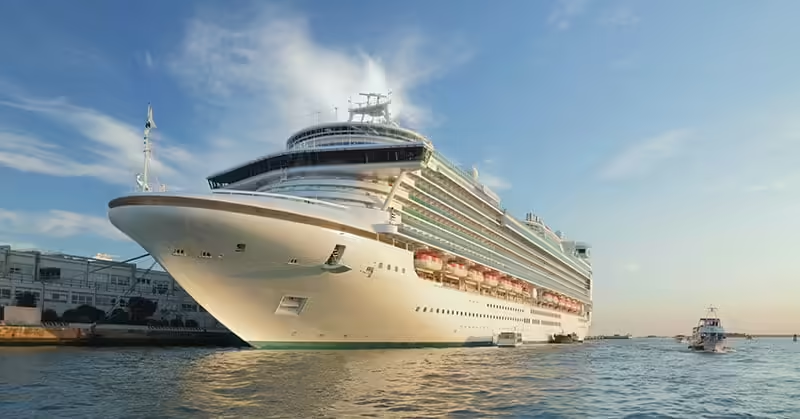General Maritime Negligence Claims for Injuries on the Water
February 23, 2021

If you are a maritime worker who has been injured in the course of your employment, please visit our Jones Act blog to understand your rights, or call Morrow & Sheppard LLP to consult our experienced maritime attorneys about your case.
This article is designed to address issues of individuals who do not work in the maritime industry but have nonetheless suffered injuries due to the negligence of a vessel owner. If this description applies to you, then you may have a basis to assert a general maritime negligence claim against the party/company that caused your injuries.
General maritime negligence claims may be asserted by passengers, guests, visitors, or anyone not employed in the maritime industry, or at least not employed by the party that caused the injuries. By way of example, potential claimants could include:
- Passengers on a ferry boat or cruise ship
- Passengers on a hired fishing vessel expedition
- Contractors on a seismic vessel that do not work generally as maritime workers
- Passengers on a hired leisure craft
Bringing a Cause of Action for General Maritime Negligence
These claims, depending on the location in which the incident occurred, and the state of residence of the party asserting a cruise ship injury claim and the party allegedly at fault for the injuries, may be compensable under maritime law. Otherwise, state negligence law applies to the claims.
Some examples of types of injuries/claims that could be asserted under general maritime negligence are:
- Unseaworthy vessel – meaning the vessel had defects that made it unsafe
- Negligence by cruise ship staff
- Food poisoning
- Slip and fall accidents
- Falling overboard, drowning
- Swimming pool accidents on cruise ship
- Recreational accidents
- Toxic chemicals
- Physical and sexual assault
- Fires
For general maritime negligence claims, the elements to prove liability on the part of a vessel owner or employees are identical to state personal injury law. A plaintiff must show:
- The vessel owner/operator/employee owed a duty of care to the plaintiff;
- This means that the vessel owner/operator/employee was supposed to uphold a certain standard or act in a certain way
- That duty must have been breached;
- The vessel owner/operator/employee failed to uphold a certain standard or act in a certain way, either by acts or omissions
- The breach must have factually and proximately caused the damages; and
- The injury was in fact caused by the acts or omissions of the owner/operator/employee; and a reasonably prudent person would find that the acts/omissions caused the injuries
- The damages are compensable
- The plaintiff suffers actual hardship and can be compensated through the civil justice system
For vessel owners/operators, the duty of care addressed above in the negligence elements is twofold: (1) they must provide a reasonable amount of security against physical harm, including criminal activity like assault; and (2) they must ensure the ship, its equipment, and its crew, are seaworthy and in reasonable working condition or are adequately trained to perform assigned tasks, respectively.
What a Plaintiff Seeks to Recover
If an injured party is able to prove that he was intentionally harmed by the vessel owner/operator, the injured party can seek punitive damages against them. An injured party may always seek economic and non-economic damages:
Economic Damages are generally damages that already have a value attached to them or can be easily calculated. These would include:
- Medical expenses. These expenses include the costs for medical examinations, appointments, therapy, treatment, and transportation to and from appointments.
- Lost wages. These damages include missed work due to hospitalization, rehabilitation, and others.
- Loss of earned income. Sometimes the damage is such that you will never be able to enjoy employment in the same area you enjoyed prior to the accident or incident.
- Funeral expenses. In some cases where a loved one died, you may be able to be reimbursed for funeral costs.
Non-economic Damages are damages that are not readily calculable. They may include physical and emotional pain and suffering, loss of enjoyment of life, loss of consortium, and other similar damages.
If you or a family member are injured on the water, top-rated trial attorneys at Morrow & Sheppard LLP can advise you and help you navigate your suit. Our attorneys are well-experienced in maritime issues and can help you find the best avenue of recovery for your case. Whether your claims fall under the Jones Act, the Death on the High Seas Act, or under General Maritime negligence, we have successfully handled many successful maritime claims, and are prepared to do the same for you.
Nick Morrow is a trial and personal injury lawyer who has been repeatedly designated as a Super Lawyer. Nick has recovered millions of dollars for deserving clients nationwide. He has handled a variety of business and all types of personal injury cases involving work-related negligence, including but not limited to oilfield injuries, maritime injuries, work injuries, and wrongful death. You can learn more about Nick here.

















































